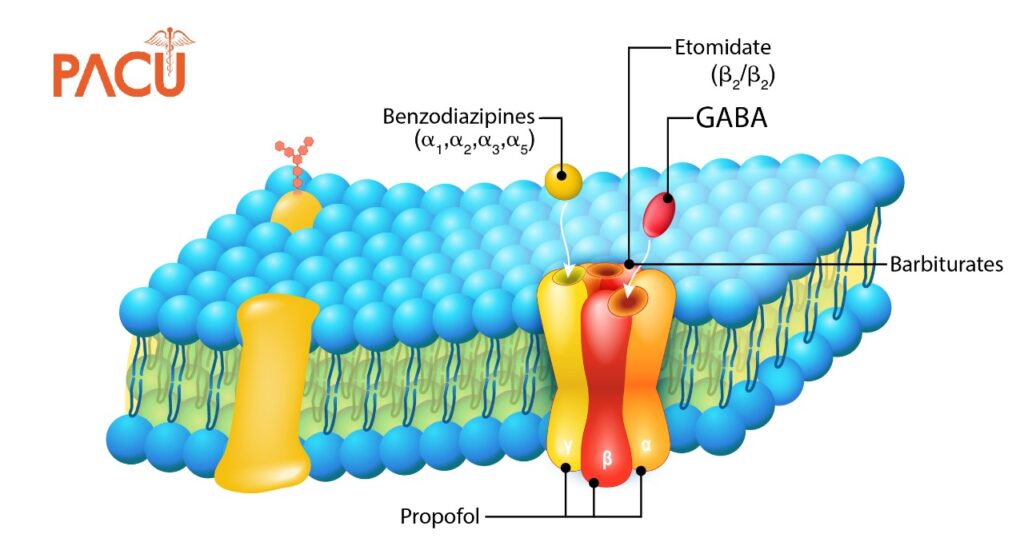Why Do We Use Induction Agents?
To ensure adequate sedation to a patient prior to paralysis and endotracheal intubation

Summary of Induction Agents for RSI
| Drug | Dosing | Onset | Duration | Adverse Effect |
|---|---|---|---|---|
| Etomidate | 0.3 mg/kg IV | 15-45 seconds | 4-15 minutes | Injection site pain, nausea, vomiting, myoclonus, adrenal suppression |
| Ketamine | 1-2 mg/kg IV 4-10 mg/kg IM | 30 seconds | 5-10 minutes | Hypertension, tachycardia, emergence phenomenon |
| Propofol | 1-2 mg/kg IV | 5-45 seconds | 3-10 minutes | Hypotension, bradycardia |
| Midazolam | 0.1-0.3 mg/kg IV | 60-90 seconds | 15-30 min | Respiratory depression, apnea, and hypotension |
Hemodynamics of Common Induction Agents
| Drug | Hemodynamic Effect | Comments |
|---|---|---|
| Etomidate | ↔ BP, ↔ CO, ↔ HR, ↓ cortisol, ↔ ICP | Prolonged inhibition of steroid synthesis in the critically ill; withdrawn from a number of countries |
| Ketamine | ↑BP, ↑ HR, ↑ CO, ↔ cortisol, ↑↓ ICP | ↔ or ↑ CPP and ↔ ICP with standard anesthetic management |
| Propofol | ↓ BP, ↓ HR,↓ CO, ↔ cortisol, ↓ ICP | Hemodynamic compromise marked in elderly, ASA 3 or more or hypovolemic patients with ‘standard’ induction dose |
| Midazolam | ↓ BP, ↓ HR,↓ CO, ↔ cortisol, ↓ ICP | Mild hypotension |

